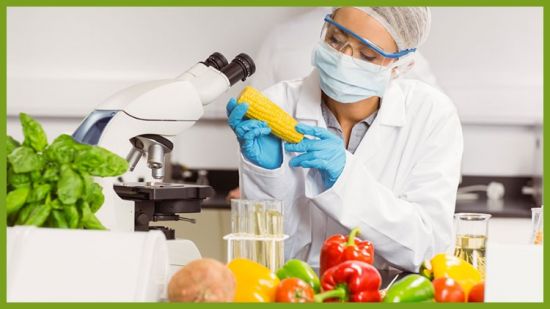ISO 22000: Food Safety Management Simplified For Beginners

ISO 22000: Food Safety Management Simplified For Beginners
Published 6/2024
MP4 | Video: h264, 1280x720 | Audio: AAC, 44.1 KHz, 2 Ch
Language: English | Duration: 42m | Size: 310 MB
Your Step-by-Step Guide to Understanding and Implementing ISO 22000 Standards
What you'll learn
Fundamentals of ISO 22000 standards
Key concepts and terminology in food safety management
How to implement a Food Safety Management System (FSMS)
Steps for operational planning and control
Understanding and managing prerequisite programs (PRPs)
Importance and methods of traceability in food safety
Developing emergency preparedness and response plans
Applying HACCP principles for hazard control
Conducting internal audits and management reviews
Continuous improvement strategies for FSMS
Ensuring compliance with ISO 22000 requirements
Requirements
Basic understanding of food safety concepts
Interest in food safety management
No prior ISO 22000 knowledge required
Willingness to learn and apply food safety principles
Access to a computer or device with internet connection
Description
Unlock the secrets to food safety with our comprehensive course, "ISO 22000: Food Safety Management Simplified For Beginners." Designed for those new to the ISO 22000 standard, this course provides a step-by-step guide to understanding, implementing, and maintaining an effective Food Safety Management System (FSMS). Whether you're a food safety professional, business owner, or quality manager, this course will equip you with the essential knowledge and practical skills to ensure food safety and compliance.Module 1: Introduction to ISO 22000Lecture 1.1: What is ISO 22000?Understanding ISO 22000History and DevelopmentLecture 1.2: Importance of ISO 22000Benefits for OrganizationsBenefits for ConsumersLecture 1.3: Key Concepts and TermsFood Safety Management System (FSMS)Terminology and DefinitionsModule 2: ISO 22000 RequirementsLecture 2.1: Context of the OrganizationUnderstanding the Organization and Its ContextUnderstanding the Needs and Expectations of Interested PartiesDetermining the Scope of the FSMSLecture 2.2: LeadershipLeadership and CommitmentFood Safety PolicyOrganizational Roles, Responsibilities, and AuthoritiesLecture 2.3: PlanningActions to Address Risks and OpportunitiesObjectives of the FSMS and Planning to Achieve ThemPlanning of ChangesLecture 2.4: SupportResourcesCompetenceAwarenessCommunicationDocumented InformationLecture 2.5: OperationOperational Planning and ControlPrerequisite Programs (PRPs)Traceability SystemEmergency Preparedness and ResponseHazard Control: HACCP PrinciplesControl of Externally Provided Processes, Products, or ServicesLecture 2.6: Performance EvaluationMonitoring, Measurement, Analysis, and EvaluationInternal AuditManagement ReviewLecture 2.7: ImprovementNonconformity and Corrective ActionContinual ImprovementUpdate of the FSMSModule 3: Implementation of ISO 22000Lecture 3.1: Preparing for ImplementationInitial Gap AnalysisProject PlanningLecture 3.2: Developing the FSMSCreating Policies and ObjectivesDocumenting Processes and ProceduresLecture 3.3: Training and AwarenessEmployee Training ProgramsCreating Awareness about Food SafetyLecture 3.4: Implementing PRPsEstablishing and Managing PRPsExamples of Common PRPsLecture 3.5: HACCP ImplementationConducting Hazard AnalysisDetermining Critical Control Points (CCPs)Establishing Critical Limits, Monitoring, and Corrective ActionsModule 4: Certification ProcessLecture 4.1: Preparing for Certificationselecting a Certification BodyPre-Certification AuditLecture 4.2: The Certification AuditStages of Certification AuditCommon Pitfalls and How to Avoid ThemLecture 4.3: Maintaining CertificationSurveillance AuditsRecertificationModule 5: ISO 22000 and Other StandardsLecture 5.1: ISO 22000 vs. ISO 9001Comparing ISO 22000 and ISO 9001Integrating ISO 22000 with ISO 9001Lecture 5.2: ISO 22000 and ISO 14001Comparing ISO 22000 and ISO 14001Integrating ISO 22000 with ISO 14001Lecture 5.3: ISO 22000 and FSSC 22000Understanding FSSC 22000Comparing ISO 22000 and FSSC 22000Module 6: Case Studies and Best PracticesLecture 6.1: Successful ISO 22000 ImplementationsReal-World ExamplesLessons LearnedLecture 6.2: Best Practices for ISO 22000Tips and Techniques for SuccessAvoiding Common MistakesLecture 6.3: Continuous ImprovementStaying Current with UpdatesEmbracing Continuous ImprovementModule 7: Tools and ResourcesLecture 7.1: Tools for ISO 22000 ImplementationSoftware and TemplatesDocumentation ToolsIn this course, you'll gain a clear understanding of the ISO 22000 standard, learn how to implement a Food Safety Management System (FSMS), and discover best practices for maintaining compliance and achieving certification. Each module is designed to build your knowledge and skills progressively, with practical examples and easy-to-follow explanations. Enroll now to start your journey towards mastering ISO 22000 and ensuring food safety excellence in your organization.
Who this course is for
Food industry professionals new to ISO 22000
Quality assurance and food safety managers
Business owners in the food sector
Employees responsible for food safety compliance
Students and graduates in food science or related fields
Consultants seeking foundational knowledge of ISO 22000
HOMEPAGE
https://www.udemy.com/course/iso-22000/?couponCode=OF53124 DOWNLOAD
https://rapidgator.net/file/b364010d376639a8aaa68453d7bf78a4/ISO_22000_Food_Safety_Management_Simplified_For_Beginners.rar.html
https://nitroflare.com/view/7D993A2EF40A309/ISO_22000_Food_Safety_Management_Simplified_For_Beginners.rar
https://nitroflare.com/view/7D993A2EF40A309/ISO_22000_Food_Safety_Management_Simplified_For_Beginners.rar
